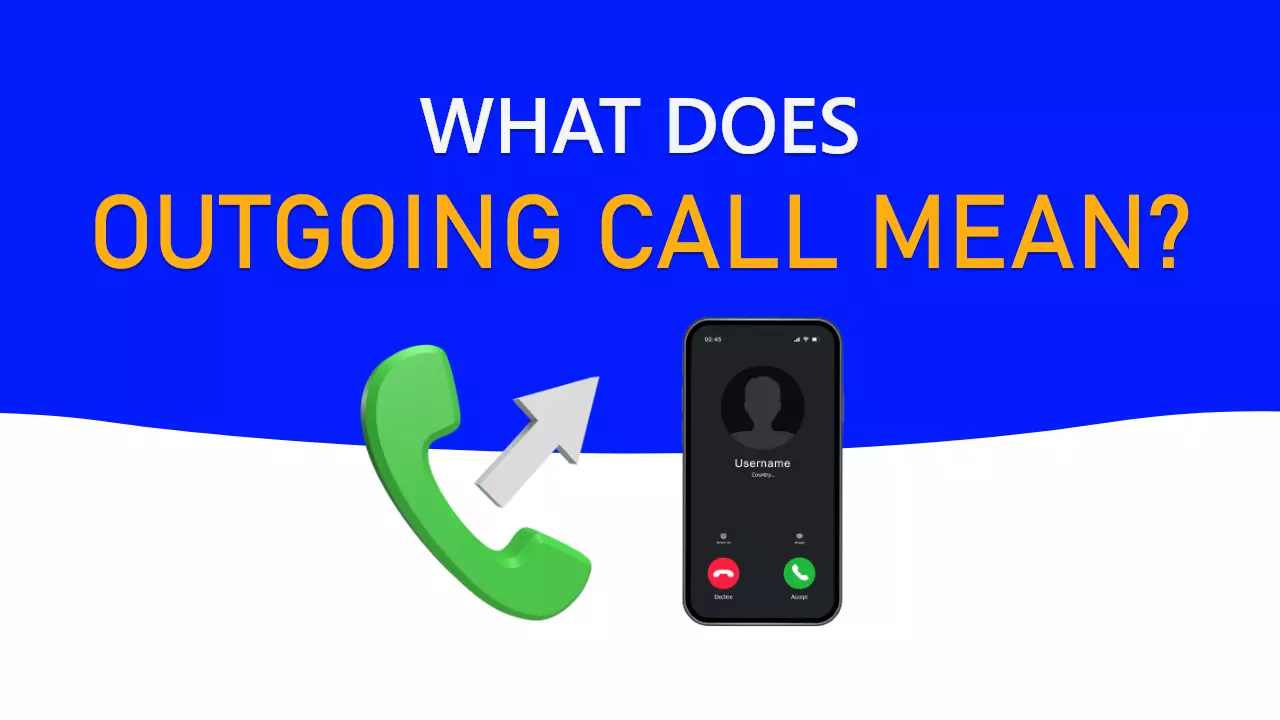Phones have become an integral part of households and businesses because they provide high flexibility and freedom in communication. Despite the evolution of several internet-based technologies for communication, many businesses still rely upon phone technology, which has significantly helped shape many businesses.
If you recently started using a business phone, you may have encountered different terms such as incoming calls, outgoing calls, cancelled calls or missed calls that are new for you.
Here in this article, we will describe everything you need to know about outgoing calls and see how it differs from incoming and cancelled calls.
What Is An Outgoing Call?
Outgoing calls are calls initiated by the caller and received by the person at the other end as incoming calls. They are an essential component of telecommunications and a primary feature of telephone systems and mobile devices. The term “outgoing call” is used to differentiate it from an “incoming call,” and phone carriers may apply different charges for both types of calls.
In the business world, outgoing calls are made from a company to a client or a potential client. In this scenario, the person making the call is the caller, while the person receiving the call is the recipient or receiver.
Examples of outgoing calls include calling a customer service hotline or placing an order over the phone. The caller initiates the call, regardless of who is responsible for paying for the call.
How Does An Outgoing Call Work?
An outgoing call is made from your phone to another person’s phone. The technical process of making an outgoing call involves the following steps:
- Dialling the phone number of the person you wish to call
- The phone’s network sends a signal to the receiving phone network, signalling the call
- If the call is accepted, the two phones connect, and communication can begin
It is essential to note that the process for making an outgoing call may differ depending on whether you use a landline or a mobile phone.
How An Outgoing Call Is Different From Incoming Calls?
When someone calls you, and you pick it up, it is known as an incoming call. Similarly, if any company calls you for the promotion of products or to conduct a survey, these are also incoming calls. But when someone calls you, and you pick it up, it is known as an outgoing call.
Incoming and outgoing calls also differ in terms of cost. In an outgoing call, the call usually pays for all the charges, and the recipient does not need to pay any money. However, the pricing varies depending on your service provider, the plan you choose and the contract. For example, dialing a toll-free number will not be charged even if you ate a caller.
Incoming calls will appear as notifications on your phone screen, displaying the caller’s name or number. Whether you choose to answer or decline the call is up to you. When someone calls you, and you can not pick that call due to any reason, the such call becomes a missed call.
In contrast, placing an outgoing call involves dialing a number before establishing a connection with the recipient.
Outgoing Call Vs Cancelled Calls

A cancelled call is a call that you try to make but cancel before it connects to a recipient. It usually happens when you dial the wrong number or change your mind about making a call. Other than that, a call is also called a cancelled call if the recipient declines your call or you have cancelled it because it goes to voicemail.
The crucial distinction between an outgoing and a cancelled call is that an outgoing call results in a successful connection with the recipient, while a cancelled call does not establish a connection at all.
Reasons For Making An Outgoing Call
Outgoing calls serve several purposes. Some common reasons for making outgoing calls include:
- Scheduling appointments or meetings
- Conducting interviews or job candidate screenings
- Making business inquiries or placing orders
- Keeping in touch with friends and family
- Seeking information or advice
Importance Of Outgoing Calls For Businesses
Outgoing calls are important for businesses because they help them to reach out to their potential clients and customers.
- Making outgoing calls enables companies to conduct surveys, advertise their products, provide services, and resolve customer issues effectively.
- Companies also have dedicated departments to make outgoing telemarketing calls and reach more prospects.
- In addition, caller identification technology is frequently utilised by businesses to guarantee that their outgoing calls are monitored and recorded for analysis purposes.
1. Advantages Of Making Outgoing Calls
Although you may find numerous ways to communicate in this digital era, there are advantages to making outgoing calls.
One most significant benefit is that you can convey a tone and personal touch usually lost in text-based communication such as instant messaging or email.
Furthermore, resolving an issue and answering questions over a phone conversation is more efficient than exchanging multiple messages or emails.
2. Common Issues With Outgoing Calls
Along with the benefits of outgoing calls, there are some common issues that you may face when making a call. Technical problems such as dropped calls, incorrect dialing and poor reception can be frustrating.
It may cause poor customer experience and affect the quality of customer support. That is why it is important to create strategies for troubleshooting these issues.
These strategies may include checking signal strength, ensuring the phone number is correct, and contacting the service provider for further assistance.
3. Best Practices For Making An Outgoing Call
It is essential to follow some best practices to ensure successful outgoing calls.
Here are some practices that you must keep in your mind:
- Preparing in advance, such as making a script of the call and a list of people and talking points.
- Speaking concisely and clearly so people on the other side are not frustrated.
- Listen actively and also allow the other person to speak.
- Avoid multitasking and distractions during the call.
- Leave a clear and concise voicemail message if needed.
4. Switch To VoIP Phone System
VoIP is an advanced business phone system that uses an internet connection to make and receive calls and helps make the calling experience more efficient and convenient.
It has several features such as call routing, call monitoring, auto attendant, voicemail to email and many others to streamline your business communication and help you to stay connected with your customers, clients and employees.
It also reduces the calling costs as you make calls online instead of using traditional phone lines. VoIP offers flexibilityand eases the making or receiving of calls from anywhere. Switch to VoIP to enjoy top-quality phone service and fulfil your outgoing call needs.
Conclusion - Outgoing Calls
In conclusion, the caller initiates an outgoing call and is directed to the recipient’s phone. Outgoing calls are an essential feature of modern telecommunication systems and are vital in connecting people worldwide. Whether making a personal call or conducting business, understanding the basics of outgoing calls is critical to communicating effectively.
By knowing what outgoing calls are and how they work, you can better navigate the complex world of telecommunications and stay connected with the people who matter most to you.
So, the next time you pick up your phone to make a call, you can do so confidently, knowing that you understand what an outgoing call means.




